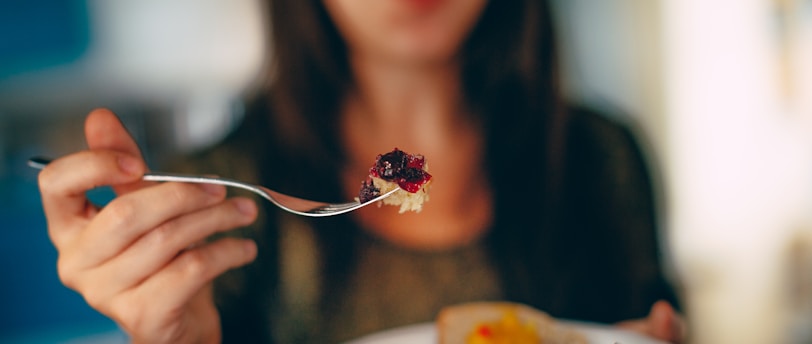Intuitive Eating: Guide to Food Freedom
Intuitive eating explained: a scientifically proved, diet-free approach to build a healthier relationship with food, reduce guilt, and support long-term well-being.
DIVERSE MEAL PLANS
8/21/20254 min read


Intuitive Eating: Finding Food Freedom (And Why Your Body Knows Best)
Did you ever feel trapped between endless diet recommendations, the latest cleanse trend, and guilt over eating birthday cake? This exhausting cycle has become the norm for millions of people that are trying to follow modern wellness culture.
But what if there was a different approach entirely? What if we significantly cut number of rules to follow? That is intuitive eating – a science-backed method that's helping people break free from diet culture and rediscover a healthy relationship with food.
So What Exactly Is Intuitive Eating?
In 1995, dietitians Evelyn Tribole and Elyse Resch introduced a revolutionary concept: instead of following external rules about eating, let's learn how to trust our own bodies again?
It sounds almost too simple, but here's the thing – our bodies already know how to do this.
Think about babies for a second. They're amazing at this stuff. They eat when hungry, stop when full, and never stress about whether they're having "too many carbs." Somewhere along the way, we lose that natural ability. Diet rules, stress, family comments about our bodies – it all drowns out those internal signals we were born with.
Intuitive eating is about getting back to basics. It's built around 10 principles that essentially boil down to: ditch the diet mentality, listen to your hunger, make peace with all foods, and stop when you're satisfied. Simple? Yes. Easy? That's another story.
What the Research Actually Shows
Here's where it gets interesting. Study after study keeps showing that people who eat intuitively tend to:
Keep their weight more stable over time (no more yo-yo dieting roller coaster)
Deal with less anxiety and depression around food
Have better cholesterol and blood pressure numbers
Actually like themselves and their bodies more
One study I read followed people for years and found that those practicing intuitive eating were significantly less likely to develop eating disorders or engage in extreme dieting behaviors. That's huge.
Let's Talk About the Pushback
Whenever I mention intuitive eating, I get the same questions. Let me address the big ones:
"Isn't this just an excuse to eat junk food all day?"
Look, when you first give yourself permission to eat anything, you might go a little overboard with the foods you've been restricting. That's totally normal. But here's what happens: when pizza isn't forbidden anymore, it loses its power over you. You start noticing how your body actually feels after eating it versus how you feel after a balanced meal. Most people naturally start choosing a mix of foods that make them feel good.
"But what about my health?"
This one drives me crazy because intuitive eating isn't anti-health – it's just a different path to get there. When you're not constantly fighting your body and feeling guilty about every bite, you often make better choices naturally. Plus, the stress reduction alone is probably worth more than any specific diet.
"I need to lose weight though."
I get it. But here's the thing – if dieting worked long-term, we'd all be thin and happy by now. The research shows that 95% of diets fail within five years. Intuitive eating isn't about weight loss (though some people do lose weight, and others don't). It's about finding peace with food and your body, whatever size that happens to be.
How to Actually Start
You don't need to throw out your scale tomorrow and declare yourself "intuitive" (though honestly, hiding the scale isn't a bad idea). Start small:
Get curious about hunger. Before you eat, just pause for a second. Are you actually hungry, or are you bored, stressed, or eating because it's "time"? No judgment, just awareness.
Eat at least one meal a day without distractions. Put down the phone, turn off Netflix, and actually taste your food. Revolutionary, I know.
Stop calling foods "good" or "bad." That cookie isn't morally inferior to your kale salad. It's just food.
Notice fullness. This one takes practice. Try to stop eating when you feel satisfied, not when your plate is empty or you're uncomfortably stuffed.
Find other ways to deal with feelings. Food works great for comfort in the moment, but it doesn't actually solve whatever's bothering you. Build up other tools – call a friend, take a walk, journal, whatever works for you.
Why This Matters More Than Ever
We're drowning in food rules and health advice. Every week there's a new "superfood" or eating plan promising to fix everything. It's exhausting.
Intuitive eating says: what if you're actually the expert on your own body? Do not outsource every food decision to an app or an influencer, learn to trust yourself again.
The science suggests this approach can reduce disordered eating, improve mental health, and create habits that actually stick. But beyond all that, it gives you something even more valuable: the freedom to enjoy food without guilt.
And honestly? Life's too short to feel bad about eating cake at your own birthday party.
References
Tylka, T. L., & Kroon Van Diest, A. M. (2013). The Intuitive Eating Scale–2: Reliability, validity, and cross-cultural assessment. Journal of Counseling Psychology.
Bruce, L. J., & Ricciardelli, L. A. (2016). A systematic review of the psychosocial correlates of intuitive eating among adult women. Appetite.
Van Dyke, N., & Drinkwater, E. J. (2014). Relationships between intuitive eating and health indicators: literature review. Public Health Nutrition.
Camilleri, G. M., Méjean, C., Bellisle, F., Andreeva, V. A., Sautron, V., Hercberg, S., & Péneau, S. (2016). Intuitive eating is inversely associated with BMI, weight concerns, and dieting in a general population-based sample. Appetite.
Frequently asked questions
What is intuitive eating?
Intuitive eating is a non-diet framework that helps you tune into hunger, fullness, and satisfaction cues to guide food choices, rather than external diet rules.
Is intuitive eating evidence-based?
Yes. Studies link intuitive eating to improved psychological well-being, lower disordered eating, and favorable health markers, often independent of weight loss.
Can I lose weight with intuitive eating?
Weight change varies. Intuitive eating focuses on a healthier relationship with food and body signals; some people lose weight, others maintain or gain slightly.
How do I start practicing intuitive eating?
Begin by checking hunger before meals, slowing down to notice satisfaction, dropping food guilt, and exploring non-food coping strategies for stress.
Is intuitive eating the same as eating anything anytime?
No. It includes permission to eat all foods, but choices are guided by internal cues—hunger, fullness, satisfaction—and how foods make you feel over time.
